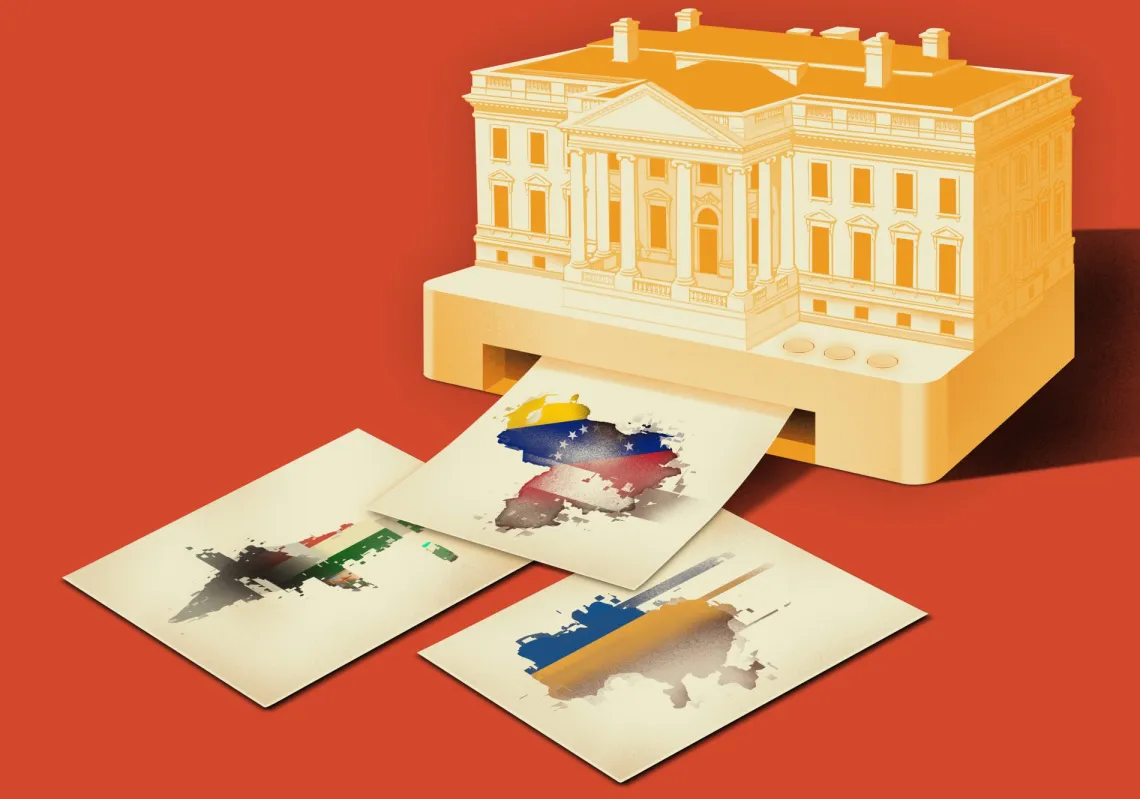A 19-year-old economic partnership between Algeria and the European Union is due to be redrawn this year, but under very different circumstances than two decades ago when it was first agreed.
After a wave of economic development, Algeria has gained the confidence to put its national interests first and build more equitable partnerships. This bravado will come in handy when fresh talks between EU and Algerian trade delegations are set to begin this month.
Several technical meetings have already been pencilled into the 2025 calendar. Ahead of the meetings, Al Majalla offers an overview of Algeria's relationship with the major trading bloc on the opposite shore of the Mediterranean, looking at the ins and outs of the pact and why the country is now better placed than before to negotiate a better deal.
An unfair shake
Algeria first signed the agreement in 2002, when it was in a far weaker state. As Aboubaker Salami points out, the country was still reeling from a security crisis in the 1990s and its subsequent economic isolation from the world.
The deal was supposed to attract European investment and boost economic growth, but that never fully materialised. It envisaged the gradual liberalisation of trade in agricultural, agri-food, and fisheries products, as well as in the service sector. It set up a free trade zone for industrial products, but as customs barriers came down, import duties kept Algerian revenue down. Meanwhile, the expected inflow of investment never came.

This led to a revenue shortfall. Since the deal's enforcement in 2005 until 2022, revenue from import duties stood at $5.6bn, or around 700bn dinars in local currency. And while the total trade volume between the two countries reached $1tn, EU investment into Algeria stood at only $13bn and was mainly confined to the energy sector, specifically hydrocarbons. Meanwhile, most of these funds ($12bn) were repatriated back into the EU through profits.
The feeling in Algeria is that the deal lacked clarity and a clear timeline. Inward investment from the EU was primarily limited to the financial sector and banking services. According to Algeria’s Agency for Investment Promotion, there were 816 foreign investment projects between 2002 and 2019, with a total value of $19bn, or around 2.6tn dinars, creating around 132,000 local jobs.
But the agreement had unintended repercussions. It boosted smuggling, often facilitated by inflated import invoices, dubious external trade deals or corrupt practices.
When he was trade minister, Bakhti Belaïb noted that $18bn worth of funds were siphoned off annually through inflated import invoices. Large sums of foreign currency are believed to have been smuggled offshore between 2009 and 2019 during the presidency of the late Abdelaziz Bouteflika.
The deal also failed to remove obstacles for Algeria’s products entering foreign markets. Lingering regulations are still keeping Algerian imports from reaching European markets. Despite continuous complaints from Algeria, the deal has yet to be thoroughly reviewed, although some partial revisions have been made.












